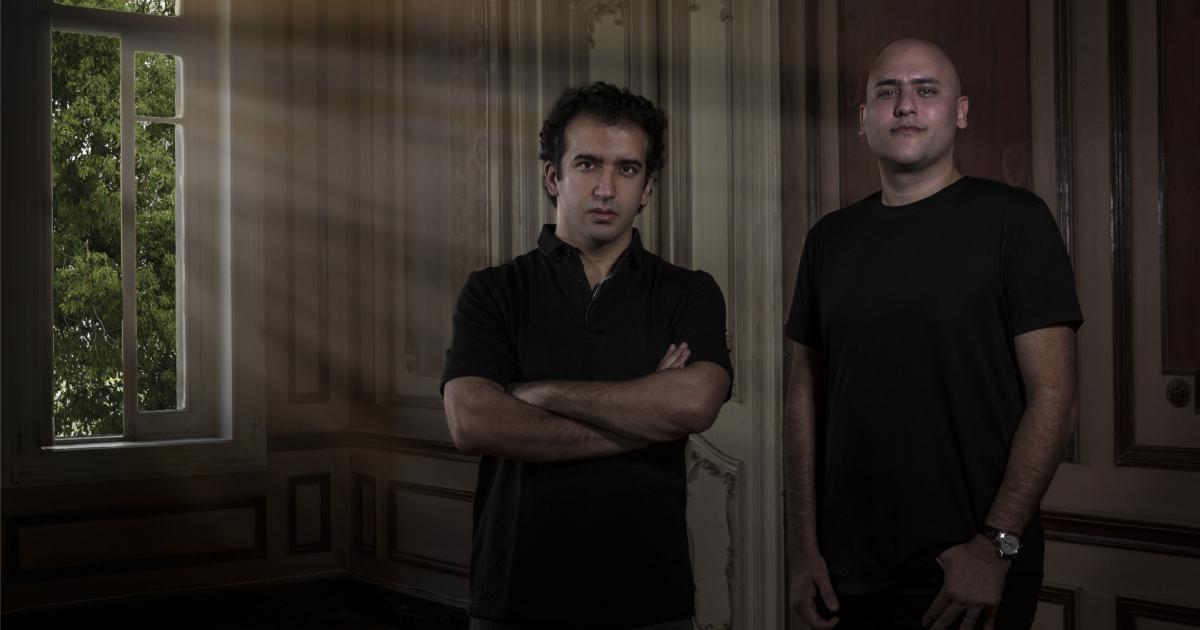Interview with Aly & Fila: “Do What You Love, Not What’s Popular”
Emerging from a country rich in history and culture, “turntable shamans” Aly Amr Fathalah and Fadi Wassef Naguib have been constructing their own myth for the past two decades. After building a super-loyal domestic following with their original Trance mixes, Aly & Fila went to extend their Trance family worldwide as the first Egyptian duo to do so, always taking extra care to proudly incorporate elements of their heritage in their album artwork, stage designs, title tracks, and of course their Future Sound of Egypt (FSOE) radio show and label.
“We are extremely proud to be Egyptians,” they point out. “We’ve always been able to integrate our Ancient Egyptian heritage into all our brands, as can be seen at our events. Whenever we play somewhere and see Egyptian flags waving in the crowd, or have other Egyptians meet us at our worldwide shows, we feel great pride.”
Growing into “cultural ambassadors”
Connecting their heritage to their work has proven successful, as they not only bring the vivid imagery of pyramids, deserts and hieroglyphs into clubs in every corner of the world, but also manage to score renowned DJ names to play in their homeland – and crowds of visitors and tourists follow: “Clubbing has always been popular in our country. It’s been big since the late 1990s, and with our “Future Sound of Egypt” branded events at the Pyramids of Giza, Karnak Temple in Luxor, and at various clubs in Sharm el Sheikh, we have been able to expand it by inviting an array of international DJs to play: Armin van Buuren, Paul van Dyk, Ferry Corsten, Dash Berlin, John O’Callaghan, and many more. We would like to think we’ve helped contribute to our clubbing culture in some way.”
Ambitious from the start, the duo followed do-it-yourself principles not only when setting up their own studio (more on that later), but also when it came to thinking about event organization, especially the DIY motto that states: if there’s no local festival with your favorite music, just create a festival yourself. “Since the underground clubbing scene is also big in Egypt, we created Heracleion Festival, featuring a day of Trance acts and a day dedicated to Techno, House and other “underground” music acts, such as Sasha, Joris Voorn, Âme, ARTBAT, and more.”
“We would like to think we’ve helped contribute to clubbing culture in Egypt in some way.”
If you’re not online, you’re not in business
The duo are noted for their savvy use of online tools. “First there was MySpace, then Facebook, Twitter and Instagram – digital channels have become a huge part of our career over the last decade.” And it’s not just social media they’re talking about. Besides regularly updating their community about their work and uploading their weekly FSOA radio episodes, Aly and Fila also rely on the internet to create tracks. Aly has to avoid live sets because of the risk of permanent hearing loss, so Fila does the touring by himself, and they stay connected online to produce new stuff. “It has been this way for around 11 years now,” they explain. “We devised our own system where we both have separate studios and work on parts of the tracks separately, then come together to finish them. With the worldwide lockdown we've all just faced, we're sure a majority of other musicians have also spent a lot more time in the studio together, being creative.”

In teamwork, clear communication is key. Source: Instagram
Tips on setting up a professional studio – and a mindset to match
Like many musicians, the duo started their music career in a small studio they set up themselves. Of course, we were curious about their first-hand tips on equipment, and what kind of goals to pursue.
Here’s the scoop: “Our mindset was very clear from the start: we wanted to do something with our talent. We started with Roland MC 505 with Korg Triton, then came Virus C, and that was a huge part of our sound through the years. We were literally saving up every penny we could to upgrade our studios. That said, the most useful tip we could give to up-and-coming producers is to focus on your dream and give all the time and effort you have. You’ll sacrifice many things, but you will be proud in the end – and even sooner, when you achieve your first goal. We didn't expect all that we’ve achieved over the years. Create the music you love and not what is popular right now, because what is popular right now might not be that popular the year after.”
Cover photo: Artists’ Archive
Staying connected is key. If you're a musician, your profile, automatically updated with all your latest stuff, is probably already on Viberate. You can send it to promoters, talent scouts, and A&Rs, and use the time you'd otherwise spend updating your onepager on making music. Check it outand sign-up to claim it.
Read this next:
Rebel Without a Pause: Our Lockdown Talk with Nifra
2019 Industry Review: Crunching the Numbers Behind the Top 100 in Electronic Music
“Don’t Stand Still, Push Your Limits!” Suggest Trance Legends Cosmic Gate

Premium music analytics, unbeatable price: $19.90/month
11M+ artists, 100M+ songs, 19M+ playlists, 6K+ festivals and 100K+ labels on one platform, built for industry professionals.


